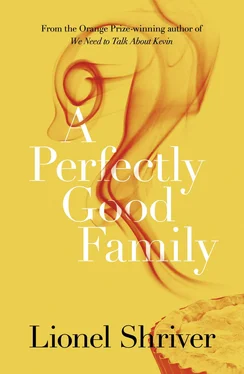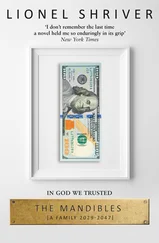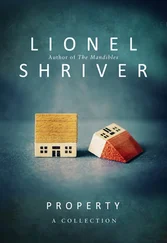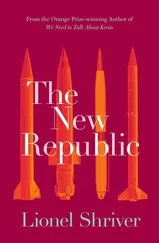“It was smashing,” I said.
Coy, but with catastrophes you have to salvage something, if only the odd wisecrack.
My wine had evaporated; I was nervous. I pinged for more, to discover there wasn’t much difference between drinking around my mother and drinking around my younger brother. They both eyed your glass and kept a running count. I often wondered what it was Mother thought I might do or say when I became so fearfully uninhibited. Once she’d become sufficiently alarmed—after two glasses—my bottle would get whisked off and corked, so to slake my thirst I would have to scrounge for my good cabernet hidden gauchely in the back of the fridge. This was subtle strategy. Once we were adults, she couldn’t forbid booze exactly, but she made you go public with how you couldn’t make it through an ordinary evening with your family without drink. She was right. I couldn’t.
I leaned forward and traced the ceramic basketry of a bulbous celadon vase on the coffee table. I worked with clay myself, and had to admire the craftsmanship of its intricate crosshatching, though the aura of the object was cool. If the serene sea-green vase had any thematic content, it was self-congratulation: wasn’t-this-difficult-to-make. It was a gift from a grateful Korean graduate student with wayward political views, whom my father had smuggled into NC State out of Seoul. My parents had been so proud of this thing and it meant nothing to me and now it was mine.
Like my father, Truman couldn’t keep his hands still, but sprang them against each other or twisted his wedding band and then kneaded the back of his neck as if trying to give himself a massage.
He nodded at the tomes to my left, each volume five inches thick. “I don’t think we should let Mordecai have the Britannicas.”
Matt black with gold inlay, the Britannicas’ aura resembled that of the vase, though where the celadon was smug the encyclopedias were scholarly, old-school, elitist. Written before HIV and even the Second World War, they were pure, withdrawn; they dwelt on antiquity, and it was hard to imagine they chronicled anything sordid. The volumes were redolent of my father, with his imposing memory for dates and the first names of historical figures. As the only girl, I was raised to think of myself as not very bright: the Britannicas were smarter than I was; they shut me out.
“A 1921 reference book?” I shrugged. “Try looking up ‘microchip’.”
“That first edition is valuable.”
“The stereo is valuable,” I said. “So’s that vase.” So’s the house . It was marvelous, what people in my family left out.
Truman tapped the black spines. “Every time Mordecai deigned to come back home—to ask for another ‘loan’—he’d drool over these books and talk about how he could hardly wait to inherit the set. To their faces. While they were alive and not very old and in good health! That call you got from me two weeks ago, you knew you’d get it some day, but I’m sure you were dreading it. Mordecai had been drumming his fingers by the phone. When I called him the day she died, I was sure the first thing that went through his mind was, goodie , now I get the Britannicas. For that matter, remember the Living Will?”
“Who could forget?” I groaned.
“Not Mother, that’s for sure. Mother remembered it, all right. Often.”
This is not the kindest introduction to my older brother. Seven years earlier, in 1985, we had gathered in this parlor at my parents’ request. I’d flown down from New York City where I was living at the time, though summoning Mordecai from only a mile away was the greater achievement. He’d only agreed to come when he heard their family conference had something to do with money.
My parents had arranged themselves on the couch, not wanting to begin without Mordecai, who had learned from my father that important people keep others waiting. Once my older brother galumphed in the door an hour late, with a curious glance around the mansion as if he’d never been here before, we three children faced the couch and fidgeted; all that was on offer was black coffee.
My mother took photocopies out of a file folder and passed them around like a handout in school. She presided. In bold on the top of my copy read: a living will. My mother proceeded to explain that as medical advances these days often make it possible for comatose or vegetative patients to live for years on life support, it was increasingly common for adults of sound mind to record in writing what their wishes might be in circumstances where they were no longer competent.
“Father and I—” she never called him Sturges to us, only Father. “—wanted you children to know that we’ve signed these pledges, verifying that we don’t want any heroic measures—”
“You mean, expensive measures,” Mordecai had interrupted.
“Yes,” Mother agreed evenly, “hospital costs for PVS patients can be quite high—”
“A thousand bucks a day,” Mordecai provided. “And that’s before the twenty-dollar aspirins.”
Mother may have colored slightly, but she kept her composure.
“These forms are not binding contracts in court,” chimed in my father, the lawyer. “But they are admissible evidence, and doctors have increasingly used them consultatively when a family needs to make a decision. Euthanasia per se is not legal in the United States, but there have been precedents—”
The photocopy was sticking to my fingers. My mother crafted an emotion in front of herself, much the way I worked up a sculpture—patting here, smoothing the rough edges, and only presenting it when fashioned to her satisfaction. My experience of real feelings, however, is that they do not take shape on a turntable in view, but loom from behind, brutal and square and heavily dangerous like a bag of unwedged clay hurtled at the back of your neck. Feelings for me are less like sculpture and more like being mugged. Consequently, with no warning, I burst into tears.
“Corrie Lou, whatever’s the matter?”
I snuffled, “I don’t want to think about your dying,” not sounding anywhere near twenty-eight years old.
My father was probably embarrassed, maybe even touched, but his expression was one of irritation.
Mother came over and stroked my hair, as she had when, rough-housing with my brothers, I’d skinned my knee—tender and purring, she was not really worried. She surprised me. Histrionic of the family, my mother should have, I thought, thrown both arms around me and wept as well, hearing those unheralded phone rings in my South Ealing flat years hence. But she was matter-of-fact. That was when I realized that most people do not fear their own deaths, really. Yours is the one death you are guaranteed not to live through; you will never have to suffer the world without you in it. She was in terror, I knew, of anything happening to my father, but as for the prospect of something happening to her beforehand she was positively hopeful.
Mother scuttled to the foyer and retrieved one of those recycled Kleenex. Once I’d blown my nose in the shreds, I swabbed drips from their Living Will, smearing the print with pink lipstick. Meanwhile my father was explaining that your mother and I don’t consider life worth living if our minds are gone, and we would hate for your lasting memory of us to be as the parents who couldn’t remember your names.
Meanwhile, Truman sat mutely in his chair and folded his Living Will in thirds. That he, too, did not get weepy was no testimony to lack of affection for his parents; if anything, Truman’s attachment to his forebears was of the three of us the most profound—too profound, in my view. He merely lacked imagination. Like foreign cities, the future was abstract; Mr. Practicality would not mourn an event that hadn’t occurred yet.
Читать дальше












